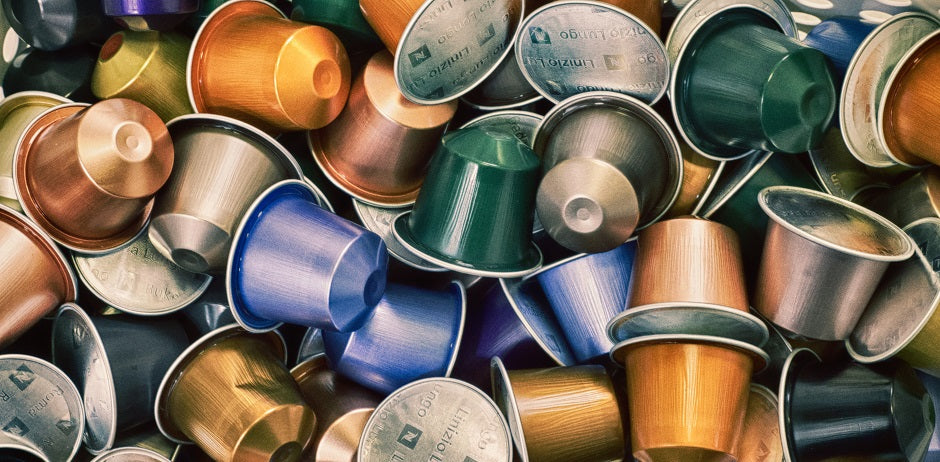
Jan 10 , 2024
0 Comments
The Evolution of Coffee Pods: A Historical and Expert Analysis
As a seasoned historian and coffee specialist, delving into the world of coffee pods unveils a fascinating journey of innovation, convenience, and changing consumer preferences. Coffee pods, also known as coffee capsules, represent a significant shift in how we brew and consume coffee, altering the landscape of the coffee industry.

Origins of Coffee Pods
The inception of coffee pods can be traced back to the late 20th century, notably with the introduction of the Nespresso system in the mid-1970s. This marked a pivotal moment where the traditional coffee brewing methods faced a formidable competitor. The concept of encapsulating pre-measured coffee grounds in a convenient pod, designed for a single serving, aimed to simplify the brewing process and cater to the rising demand for quick and easy coffee solutions.
Manufacturing Process and Distinction from Specialty Coffee
Coffee pods are typically made using a combination of plastic, aluminum, or compostable materials. The design revolves around preserving the freshness of the coffee grounds, ensuring a consistent and flavorful cup with each use. However, the key distinction lies in the type of coffee used in these pods compared to the world of specialty coffee.
Specialty coffee emphasizes the highest quality beans, often sourced from specific regions, with an emphasis on unique flavors and meticulous processing. In contrast, coffee pods often utilize a blend of beans that may not adhere to the same stringent standards as specialty coffee. The trade-off between convenience and the nuanced flavors found in specialty coffee becomes evident in this differentiation.

The Business Model: From Machines to Ecosystem
The coffee pod phenomenon extends beyond the pod itself; it encompasses an entire ecosystem. Major players in the industry, such as Nespresso and Keurig, not only manufacture the pods but also produce the machines designed to brew them. The business model is cleverly structured to create a symbiotic relationship – consumers invest in the machine, and in return, they commit to purchasing the compatible pods.
This ecosystem relies on the recurring revenue generated by pod sales, often at a premium compared to traditional coffee beans. The allure of a hassle-free, consistent cup of coffee has led to a substantial market for these machines and pods, creating a lucrative business model that has proven successful on a global scale.
The Popularity of Coffee Pods: Convenience at the Core
The meteoric rise in the popularity of coffee pods can be attributed to one overarching factor – convenience. In a fast-paced world where time is of the essence, the appeal of a one-touch brewing system that delivers a consistent and quick cup of coffee is undeniable. Coffee pods cater to the on-the-go lifestyle, offering a solution that fits seamlessly into busy mornings and office spaces.
The simplicity of inserting a pod, pressing a button, and enjoying a freshly brewed cup has resonated with a vast consumer base. This ease of use, coupled with minimal cleanup and the elimination of the need for coffee measurements, has positioned coffee pods as the go-to choice for those seeking a hassle-free coffee experience.
The Enduring Allure of Specialty Coffee
Despite the widespread adoption of coffee pods, a distinct segment of the population remains committed to the artistry and craftsmanship of specialty coffee. Enthusiasts and connoisseurs value the intricate processes involved in sourcing, roasting, and brewing specialty beans. The ritualistic aspects of grinding beans, adjusting grind settings, and experimenting with brewing techniques are an integral part of the specialty coffee experience.
This subset of coffee lovers places emphasis on the unique flavor profiles inherent in specialty beans, often sourced from specific regions or single-origin estates. The journey from bean to cup is celebrated, and the exploration of diverse brewing methods becomes a form of self-expression and appreciation for the complexities of coffee.
In the ever-evolving landscape of coffee consumption, coffee pods have secured their place as a convenient and accessible option for a wide audience. Their popularity is a testament to the evolving preferences of a society that values speed and efficiency without compromising on taste.
However, the enduring allure of specialty coffee, with its focus on quality, sustainability, and the art of brewing, showcases the diversity within the coffee community. As an expert historian and coffee specialist, I recognize the richness that each brewing method brings to the table. Whether through the efficiency of coffee pods or the meticulous craftsmanship of specialty coffee, the ultimate goal remains the same – to savor the essence of this beloved beverage in a way that resonates with individual preferences and lifestyles.

